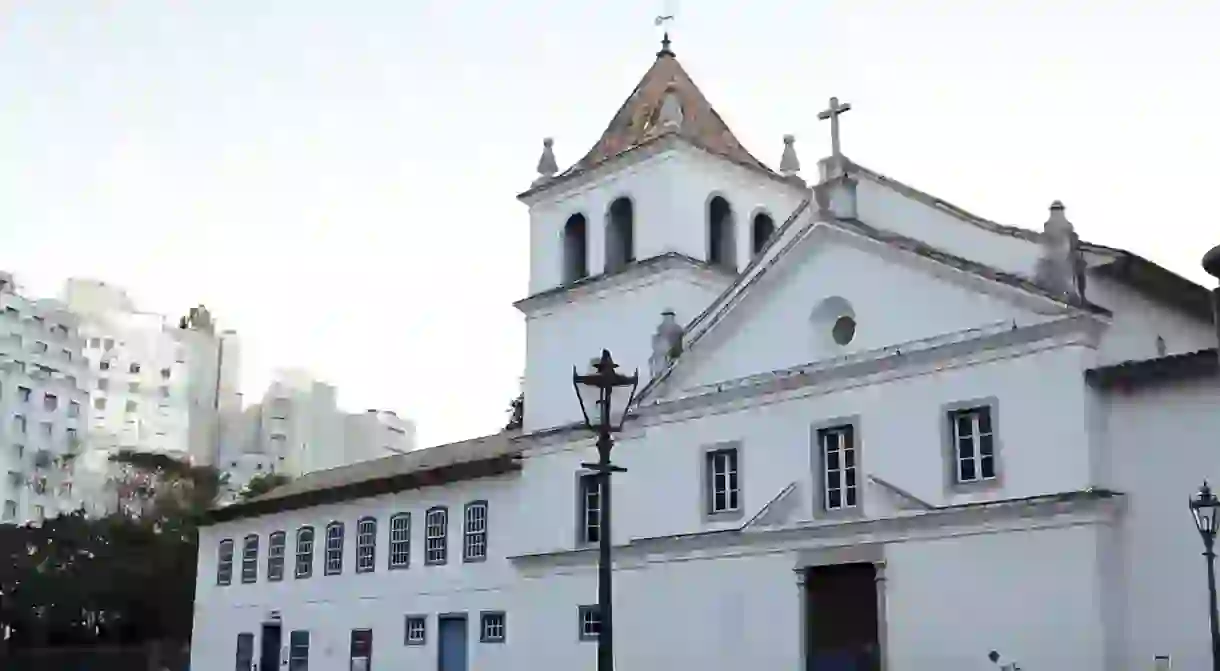History of the Pátio do Colégio in 60 Seconds

Slap-bang in the center of Sao Paulo, the Pátio do Colégio (often written in archaic Portuguese spelling as Pateo do Collegio, meaning School Yard) is the city’s oldest building, construction having begun in 1554.
Portuguese sailors landed in Brazil for the first time in 1500 and made their way down the coast towards present-day Sao Paulo. There, on the shores of the Atlantic, the Portuguese established their first permanent settlement in Sao Vicente in 1532, when a group of Jesuit priests led by Manoel da Nóbrega began travelling inland over the Serra do Mar hills to convert the region’s indigenous communities.
These priests came across a hill between the Tamanduateí and Anhangabaú rivers, and with the permission of the local indigenous Chief Tibiriçá, an ally of the Portuguese, they built an earthen hut to begin their catechisms. On January 25, 1554, the Feast of the Conversion of Saint Paul, the priests held their first mass on the hill, and the date is celebrated today as the founding of Paulo. In years that followed, a proper church was built on the very same site along with a school and lodging soon after, and the area became known as the Pateo do Collegio.
Over the years, many of the original structures have been demolished, changed, or renovated. For a time, it housed the Governors’ Palace of the Sao Paulo city government but was ultimately abandoned, and the old church was almost completely demolished. Work to rebuild the Pátio do Colégio began in 1954 for the time of Sao Paulo’s 400-year anniversary.
Today, the Pátio do Colégio is home to the Museu Anchieta, which tells the story of the foundation of Sao Paulo and of José de Anchieta himself, who was canonized by the Catholic Church in 2014. The museum features parts of the original construction from the 16th century, as well as an fascinating collection of artifacts and records from the time period.













